
How to Help a Dog with Separation Anxiety
This post may include affiliate links. Please read my disclosure policy.
There is really no such thing as spending too much time with a dog. Our furry best friends are the perfect companions, and they love time together just as much, if not more, than we do!
As much as we’d like to be together 24/7, there are times when we have to leave our dogs at home for a time, whether it’s for work, shopping, or taking care of other necessities. How wonderful is it though, when we return and are greeted by the madly wagging tail of a pooch who can barely contain the excitement of seeing us again?
For some dogs, however, being left alone causes anxiety. This condition, called separation anxiety, causes dogs to feel stressed out and unhappy, rather than content and calm, waiting for their parents to return.
Pin Me!
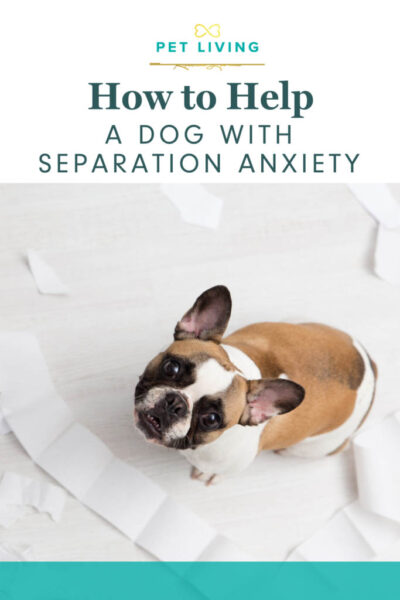
How to Know if Your Dog Has Separation Anxiety
Just like other forms of fear, anxiety, and stress, separation anxiety affects dogs in different ways and to different degrees.
If your dog is experiencing separation anxiety, you may notice signs of stress before you leave. These could include following you to the door or becoming depressed or distressed as you start to get ready. Dogs are creatures of habit, and they know the things you do when you are preparing to leave them. A dog who starts acting “weird” when you’re doing your hair or getting out your jacket may be feeling anxiety.
Watch for any of these signs of separation anxiety:
-
-
- whining
-
- pacing
-
- panting
-
- barking
-
- destructiveness (clawing, chewing, etc.)
-
- peeing
-
- clinging to you
- barking or howling
-
Some of these behaviors are difficult to notice since they happen while you’re not around. If your dog begins barking like crazy after you leave, your neighbors may realize that your dog has separation anxiety before you do.
It’s a good idea to speak to close neighbors to find out if your dog is becoming vocal when he’s alone. Another option for observing your dog when you’re away is to set up an inexpensive camera, like this one, to observe quiet behaviors that indicate stress.
What Not to Do if Your Dog Has Separation Anxiety
Separation anxiety will not resolve on its own, so simply ignoring the problem is not the answer. When a dog experiences anxiety it greatly affects his quality of life, and it needs to be treated.
It’s also important to never punish a dog for destructive or disruptive behavior. This will only reinforce the feelings of anxiety he is experiencing.
If your dog acts out because of separation anxiety, it’s not an issue of misbehaving or trying to get back at you for leaving. I recently talked with Dr. Lisa Radosta from Florida Veterinary Behavior Service. Dr. Radosta is a board-certified veterinary behaviorist who has extensive experience with separation anxiety. She explained that the anxiety dogs experience is a physiological response, caused by the “release of neurochemicals in the brain that affect neurochemicals in the rest of the body and hormones” as well. It’s this panic response that leads to problem behaviors.
How to Manage Your Dog’s Separation Anxiety
If you notice signs of separation anxiety in your dog, make an appointment to see your veterinarian as soon as possible. In addition to helping you to determine the severity of your dog’s anxiety, your veterinarian can also rule out pain or other medical conditions as the cause for anxiety-related behaviors. Your veterinarian is the only one who can properly diagnose anxiety and give prescription medication if necessary.
Separation anxiety is very treatable, and as long as you keep up with the treatments it’s usually possible to reach a point where it has almost no impact on your dog’s quality of life. With help from your veterinarian, you can come up with a plan that works for your dog.
In addition to consulting your veterinarian, Dr. Radosta recommends the following methods to help dogs with separation anxiety.
-
-
- Make your departures and returns low-key.
-
- Give your dog a special treat or toy just before or at the point where he notices that you’re getting ready. This will help him to associate your leaving with something good. Depending on how early in the process his anxiety surfaces, you may have to repeat a few times before you finally walk out the door.
- Teach independence. Train him to lay in a specific spot, like on a mat, and stay there. If he gets up and follows you, don’t give him attention.
-
It takes patience to help a dog with separation anxiety. You may need to start by leaving your dog alone for short periods of time and gradually build up to more lengthy times apart. You may even need to start with just a few minutes alone in a room where your dog feels safe.
For mild cases of separation anxiety, a few adjustments to your routine and helping your dog form positive associations are often all that you need to do. More severe anxiety might require medication or more behavioral treatment.
How to Keep Your Dog Entertained and Engaged When You’re Not at Home
An engaged dog is usually a happy dog, and a tired dog is much less likely to experience anxiety or boredom while you’re away because he’ll be too busy resting.
Exercise and interactive games are important for your dog’s physical health, but they can also help to alleviate anxiety to some extent.
If possible, provide your dog with 30 minutes of good aerobic exercise before you leave. This could include running, swimming, or playing fetch or tug-of-war. This will make it easier for him to rest and relax while he awaits your return.

One of my favorite ways to keep my dogs engaged and calm is to turn on DOGTV. This is different than just leaving on the television or the radio so that your dog has some background noise. Experts in canine behavior developed DOGTV to alleviate separation anxiety and keep dogs calm and engaged. Its programs were developed from more than 60 scientific studies, and there are even five patents on the technology used to create the programming.
If you were to sit down and watch DOGTV, it might look and sound different than what you’re used to, but that’s because it was designed to appeal to dogs’ specific needs.
For example, the color is infused in post-production to make it more visually appealing to the canine eye. The music was also composed specifically for dogs. The various segments are carefully planned to entertain, stimulate, and calm your dog. Even when they’re not actively watching, they still benefit from the healing sound frequencies and relaxing music.
Here in the Pet Living office, I have DOGTV on most of the day to keep Chilly and Tulip entertained or calmed. Sometimes they watch, but other times, they just listen to the soothing music and nature sounds.
During Pet Anxiety Awareness Month (PAAW), you can sign up for a free month of DOGTV! Just click on this link to get started.
Time spent apart doesn’t have to be stressful for your dog. With help from your vet and a few tricks up your sleeve, you can keep him relaxed, calm, and ready to welcome you home!

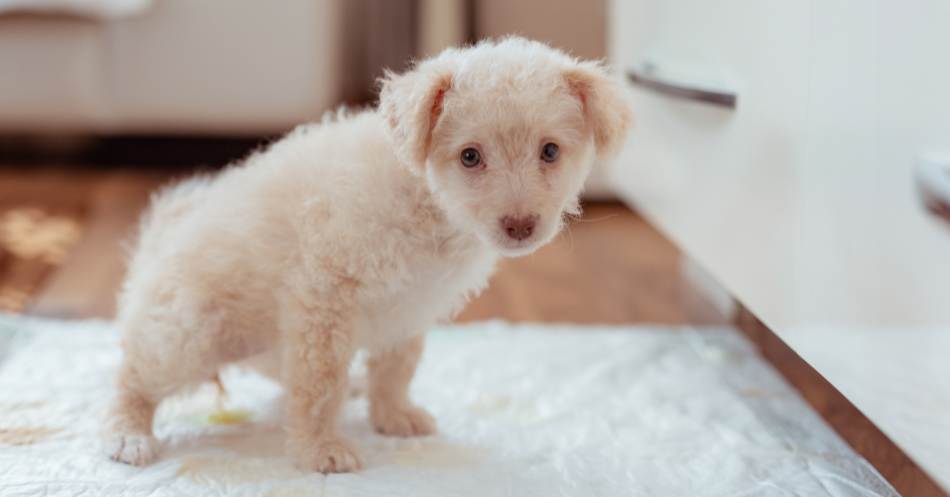

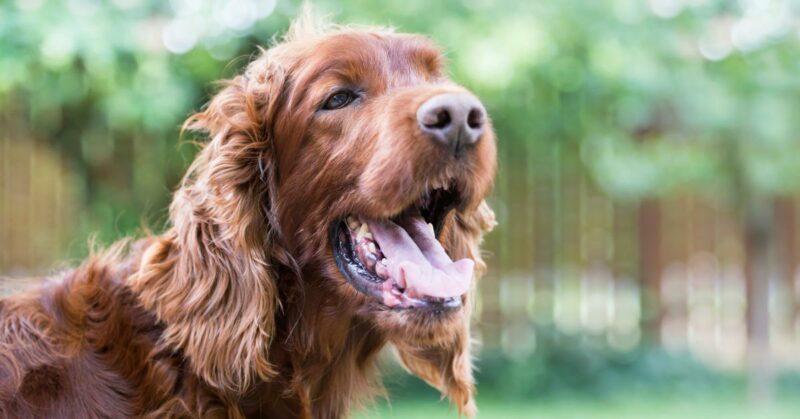
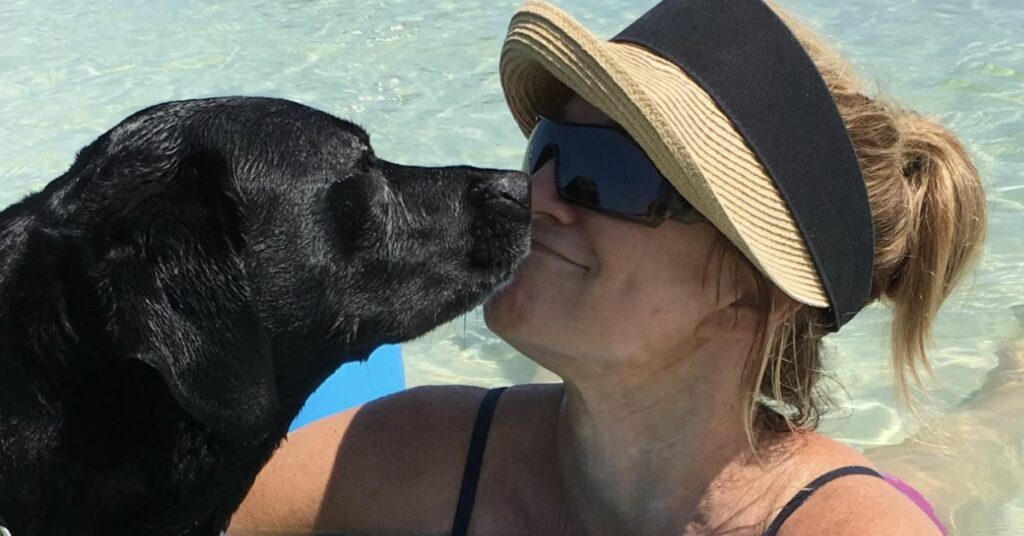
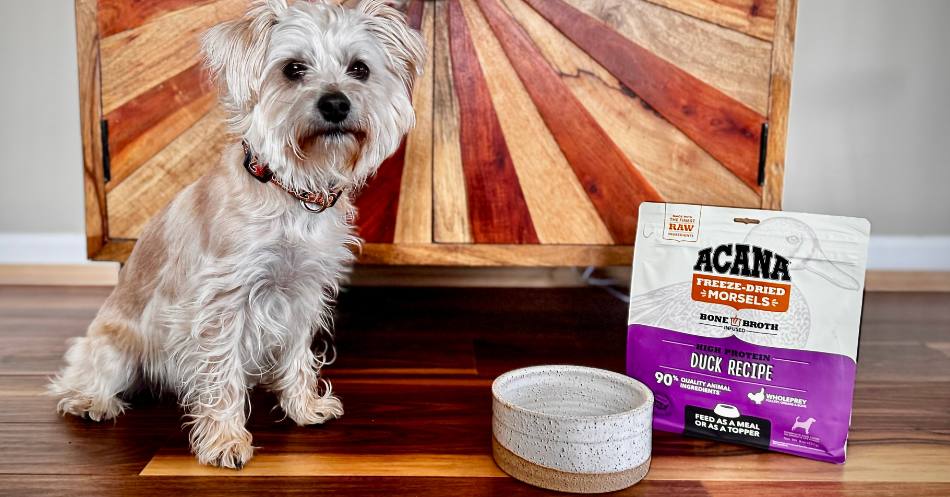
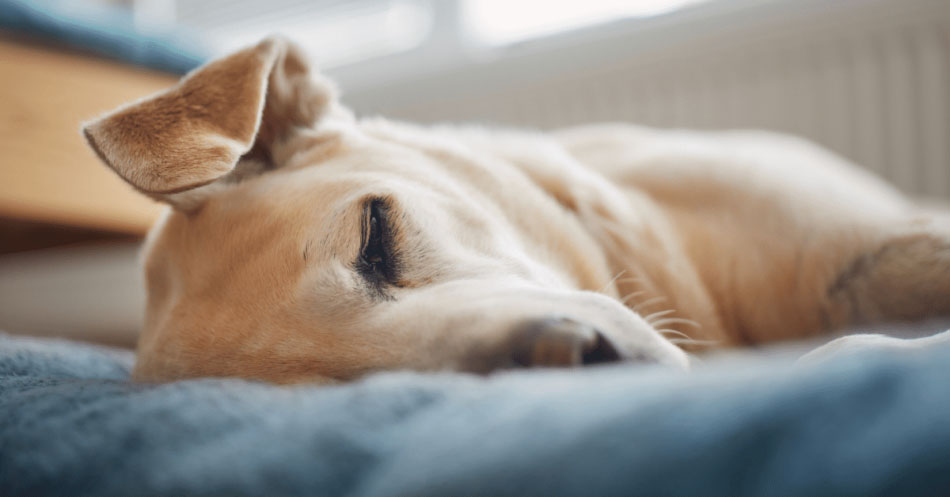
I have an 8 + year old rescue. I have had him for about 1 1/4 years. He has bonded with me and will not let me out of his site. He has serious abandonment issues. I think he was abandoned in a locked house and starved because he hides food in my house in the furniture. He is destructive and pees everywhere if I leave him. He tears up any room he is in, tears open boxes. strews their contents all over the room. He opens closets, climbs on the furniture and tears whatever is in there apart. He climbs on to counters and tears the blinds down. If he is more confined he barks non stop and becomes hysterical. He will destroy anything around him. The neighbors have complained. He cannot be left to go in and out of the house because he barks non stop, tears at the fencing, plants, door frame etc. If I take him with me and leave him in the car he destroys the car – tears the seats apart and chews up the leather. I have given him CBD oil, I have given him doggy calming chews, I have given him puzzles, toys, hidden food, had him watch TV brought in another dog to sit with him and NOTHING helps. I have been through all the training suggestions about coming and going and they do not work. Please help!!!!!!!!!!!!!!!!!!!
Hello Barbara,
Oh my goodness, I’m so sorry you’re having to deal with that – and I’m so sorry your poor dog appears to have been mistreated so badly before you rescued him. If you haven’t already, you might consider discussing treatment options with your vet. Given his severe anxiety, they may recommend prescription medication to help. Veterinary behaviorists are also a wonderful option for helping animals with severe anxiety and abandonment issues. The DACVB website can help you find a veterinary behaviorist near you.
I wish you and your pup all the best and hope things start improving for you soon.
Kristen